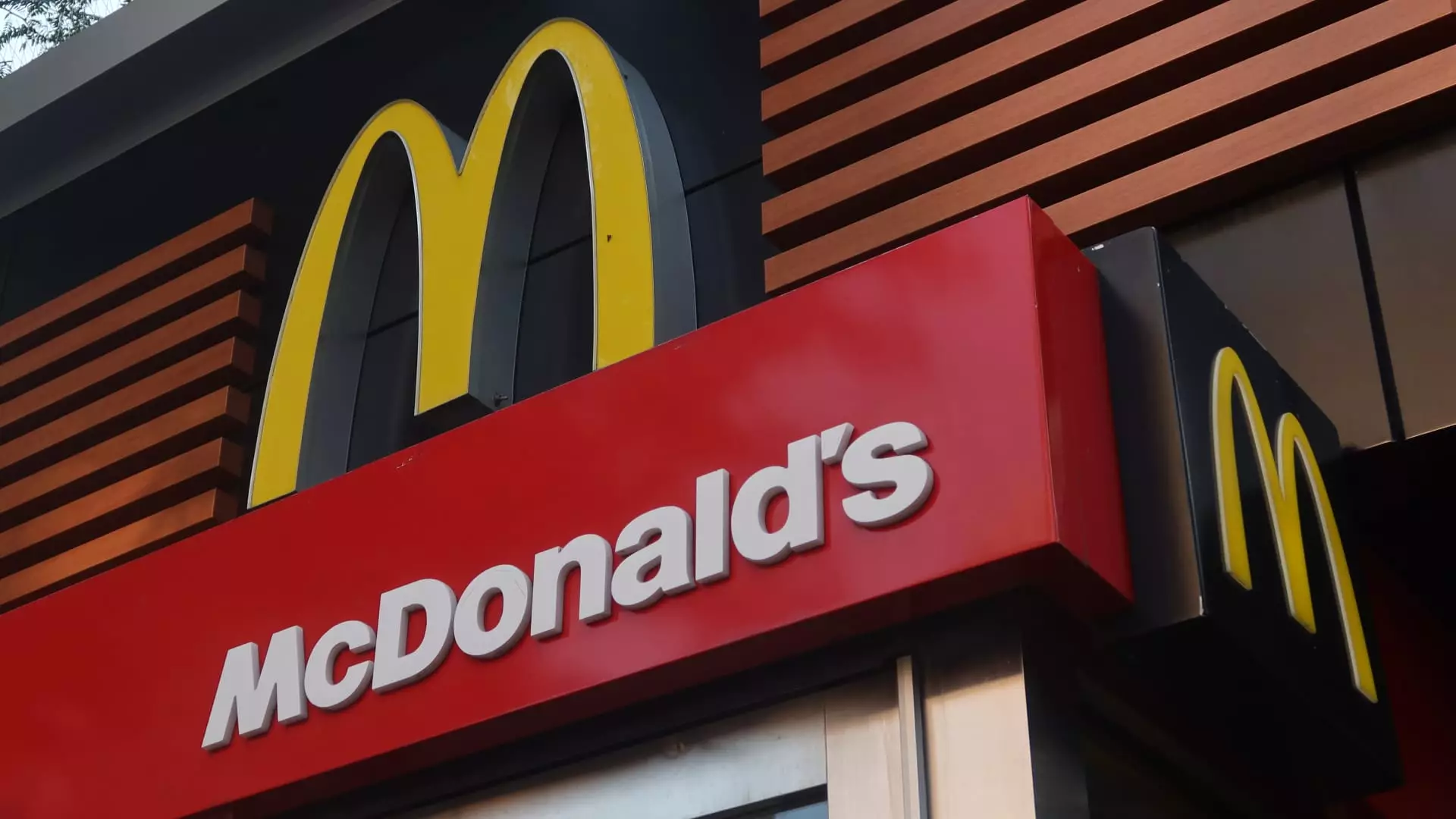McDonald’s recent earnings report presents a seemingly triumphant narrative: higher-than-expected revenue, increased profits, and a rebound in sales driven by strategic promotions. However, a critical eye reveals that beneath these headlines lies a fragile foundation rooted in fleeting marketing tactics rather than sustainable growth. The chain’s focus on promotional deals—like $5 meal bundles and limited-time menu items—appears to be a temporary bandage over the persistent decline of its core customer base. While executives tout these efforts as proof of resilience, one must question how long such tactics can carry the franchise without addressing the fundamental economic pressures shaping consumer behavior, especially among low-income Americans.
The core issue is that McDonald’s is not genuinely expanding its market share through genuine innovation or improved value propositions; instead, it is doubling down on promotional events. These promotions temporarily boost sales but threaten to undermine the perceived value of the brand if overused, potentially alienating loyal customers seeking quality and consistency. Moreover, this short-term tactic can lead to a dangerous cycle—where sales spike only when discounts are on offer, eroding profit margins and devaluing the brand in the long run.
The Real Consumer Crisis: Low-Income Americans in Decline
Despite a reported increase in sales, McDonald’s executives openly admit that the health of the low-income consumer remains a critical concern. The decline in visits from this demographic is a stark warning sign: it suggests that economic pressures are intensifying, making fast food less accessible or appealing to those who depend on it most. This is not an issue that can be resolved through gimmicks alone; it is a symptom of broader economic challenges, such as stagnant wages, inflation, and rising living costs.
The company’s cautious tone about the near-term outlook reflects an uncomfortable truth: without meaningful improvements to affordability and economic stability for low-income workers, the chain’s growth will remain superficial. While McDonald’s may be riding a temporary wave of increased sales, it is merely postponing a deeper reckoning with the economic realities that threaten its long-term viability.
International Markets: A Double-Edged Sword
On the international front, McDonald’s is experiencing more genuine growth, with markets like Japan, China, the UK, Australia, and Canada showing solid same-store sales increases. This divergence underscores the uneven nature of its global performance and raises questions about its reliance on international markets for future growth. The company’s ability to stand out internationally relies less on promotional discounts and more on its perceived value, which appears to resonate better where competition is less fierce.
However, this international success is not necessarily a sign of robust health. It indicates that in some regions, consumers may be willing to spend more or see more value in McDonald’s offerings. Yet, these markets are not immune to economic shifts. As global uncertainties persist, the international growth story could falter, leaving McDonald’s overly dependent on a handful of markets where consumer loyalty might be less stable than it appears.
Valuing the Brand or Playing the Short Game?
Ultimately, McDonald’s current strategy reflects a troubling choice: prioritize short-term gains over long-term brand strength. The emphasis on promotions and discounted menu items risks undermining the core identity of the brand—quality, consistency, and value—if it becomes associated solely with cheap deals. Moreover, this approach ignores the growing demand for healthier, more sustainable options, which could serve as a real differentiator in an increasingly health-conscious world.
While the company boasts improved consumer perception of value in certain markets, this might be an illusion. If the focus remains on discounts and promotional stunts, McDonald’s may temporarily mask its underlying issues but fail to build a resilient competitive advantage. The challenge for the chain is shifting from reactive promotional tactics to a proactive strategy that genuinely elevates its offerings and re-engages its base—particularly those low-income consumers who are slipping away.
In the end, McDonald’s recent performance is a testament to its marketing agility, but it does not address the core economic dilemma at hand. The chain’s growth is increasingly superficial, built on short-term promotions that only serve as a temporary fix. For sustainable success, McDonald’s must confront the declining purchasing power of its low-income customers and innovate beyond discounts, fostering genuine value that resonates across socioeconomic lines. Otherwise, the veneer of strong earnings will continue to mask a perilous trajectory—one where brand integrity and consumer loyalty are sacrificed for fleeting sales spikes.


Leave a Reply